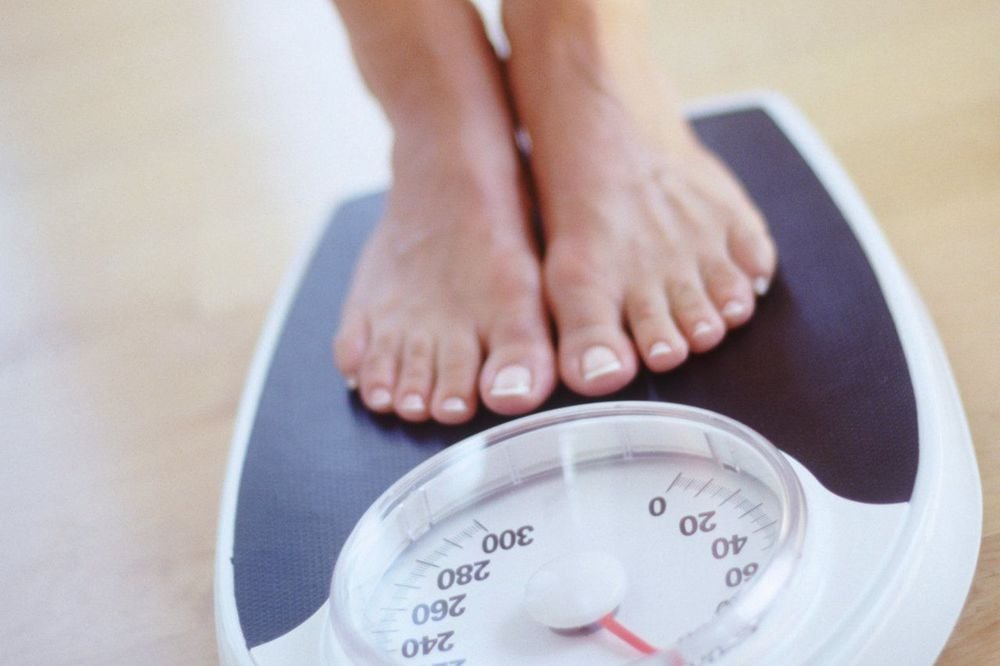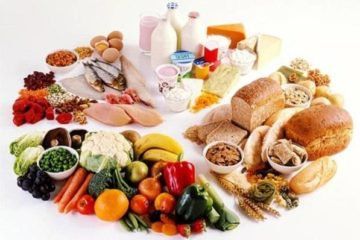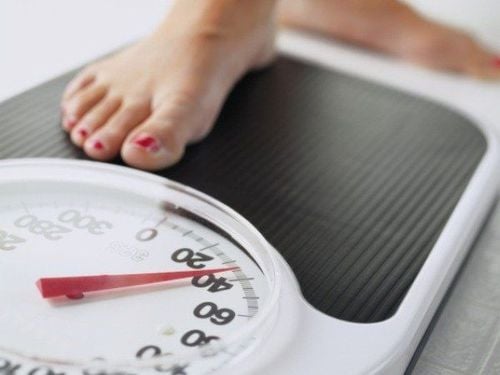This is an automatically translated article.
Initially, you can lose weight without much effort. Because then, the struggle in your body is very high. However, weight loss can slow down or stop altogether after a while. This article will list 20 common reasons why it is difficult for you to lose weight1. You might be losing weight without realizing it. If you think you're experiencing a flat stretch of the weight loss graph, don't fret. It is extremely common of this process to remain unchanged for a few days or weeks. And that doesn't mean you don't lose fat.
Body weight tends to fluctuate by a few kilograms. Because, it can depend on the foods you eat or your hormones can also be a big factor in how much water your body retains (especially in women).
Also, weight loss can be a combination of muscle gain and fat loss. This is especially common if you start exercising. This is a good thing, since what you really want to lose is body fat, not just body weight.
2. You Don't Track Your Diet Daily Diet awareness is extremely important if you are trying to lose weight. Most people don't know how much they actually eat in a day.
Studies show that tracking your diet helps with weight loss. People who use food diaries or take pictures of their meals consistently lose more weight than those who don't.
3. You're Not Eating Enough Protein Protein is the single most important nutrient for weight loss. Eating protein at 25-30% of calories can boost your metabolism by 80-100 calories per day and make you automatically eat a few hundred fewer calories per day. It can also significantly reduce cravings and snacking. This is made possible in part by protein's effect on appetite-regulating hormones, such as ghrelin and others.

Bữa ăn cần đủ chất giúp cơ thể khỏe mạnh và kiểm soát được lượng calo dung nạp
If you eat breakfast, be sure to include protein in your body. Because, studies show that people who eat a high-protein breakfast are less hungry and have fewer cravings throughout the day.
A high protein intake also helps prevent a slow metabolism, which is one of the common side effects of weight loss. In addition, it helps prevent weight gain again.
4. You're Eating Too Many Calories A large number of people who have trouble losing weight simply eat too many calories. You may think this doesn't apply to you, but keep in mind that studies have shown that people tend to underestimate their calorie intake.
If you are a difficult person to lose weight, you should try to weigh your food and monitor your daily calorie intake for a while. Here are some helpful resources to help make this work:
Calorie calculator : Use this tool to find out how many calories are needed for a serving. Calorie Counter: Here's a list of five free websites and apps that can help you keep track of your calories and nutrient intake. This tracking is also important if you're trying to achieve a certain nutritional goal, such as getting 30% of your calories from protein.
5. You don't eat whole foods The quality of the food is just as important as the amount of food you eat. Eating healthy foods can improve your health and help regulate your appetite. These foods tend to be much more filling than food products made from it.
Remember that many processed foods are labeled "health foods" but are not actually healthy foods.
6. You're not lifting weights One of the most important things you can do when losing weight is to do some form of resistance training, such as lifting weights. This can help you maintain muscle mass.
Lifting weights can also help stop the metabolism from slowing down and ensure that your body stays toned and your muscles toned.

Kiên trì tập luyện tập luyện đối kháng nâng tạ giúp duy trì khối lượng cơ bắp
7. You are binge eating (even with healthy foods) Binge eating is a common side effect of the diet. It involves eating large amounts of food, often more than the body needs. This is a problem worth noting for many dieters.
Some people are addicted to junk food, while others favor healthy foods with healthy effects, including nuts, nut butters, dark chocolate, cheese, and more.
But, even when eating healthy food, its calories still count towards servings. Depending on the volume of food, a full meal can also ruin the value of the diet for the whole week.
8. You don't do Cardio Cardiovascular or aerobic exercise is the type of exercise that increases the body's heart rate. It includes activities such as running, cycling and swimming. It is one of the most effective ways to improve health.
Furthermore, it is also very effective in burning belly fat, the harmful "visceral" fat that accumulates around the body's organs and is a risk factor for disease.
9. You're Still Drinking Sugary Drinks Sugary drinks are the fattest foods. When using high-sugar beverages, the brain does not balance enough calories for the body. This is not only true of sugary drinks like Coke and Pepsi but it also applies to more "healthy" drinks like Vitaminwater, which are also high in sugar.
Even fruit juices have limitations, and should not be consumed in large quantities. A single glass can contain the same amount of sugar as several pieces of fruit.
10. You don't sleep well Good sleep is one of the most important factors in physical and mental health, as well as body weight.
Studies show that poor sleep is one of the biggest risk factors for obesity. Adults and children with poor sleep were 55% and 89% more likely to be obese, respectively.

Giấc ngủ không ngon gây ảnh hưởng đến chất lượng cuộc sống của bạn
11. You Don't Cut Carbohydrates If your body mass is too large or you have metabolic problems like type 2 diabetes or pre-diabetes, you can consider and adopt a low-carb diet. carbs .
In short-term studies, this diet has been shown to produce 2-3 times more weight loss than the commonly recommended standard "low-fat" diet.
Low-carb diets can also lead to many improvements in metabolic markers, such as triglycerides, good cholesterol HDL and blood sugar,...
12. You're using split meals Daily It is theorized that people should eat several small meals each day to boost metabolism and lose weight. However, actual studies show that low meal frequency has no effect on fat burning or weight loss. It causes inconvenience when preparing and eating food throughout the day. And it makes healthy nutrition much more complicated.
13. You don't drink water Drinking water can be beneficial for weight loss. In a 12-week weight loss study, people who drank half a liter of water 30 minutes before a meal lost 44% more weight than those who didn't.
Furthermore, drinking water has also been shown to increase the number of calories burned by 24-30% over a 1.5 hour period.
14. You're Drinking Too Much Alcohol If you like alcohol but still want to lose weight, it's best to use spirits (like vodka) mixed with a zero-calorie drink. Because, beer, wine and alcoholic beverages are often very high in calories. However, you should also keep in mind that alcohol also has a calorie count of about 7 calories per gram, and this is on the high end.

Sử dụng quá nhiều rượu không tốt cho sức khỏe của người dùng
15. You're Not Conscious About Eating The Conscious Eating Technique is one of the world's most powerful weight loss tools. It involves acting slowly, with focus when eating, savoring every bite, and at the same time listening to the natural signals transmitted to the brain when the body has had enough.
Many studies have shown that being aware of what you eat can lead to significant weight loss, moreover it also helps to reduce the frequency of overeating.
16. You have a health problem that makes it difficult to lose weight There are a number of medical problems that can promote weight gain and make weight loss much more difficult. These problems include hypothyroidism, polycystic ovary syndrome (PCOS), and sleep apnea.
In addition, some medications used in treatment can also make weight loss more difficult, or even cause weight gain.
17. You are addicted to junk food According to a 2014 study, about 19.9% of people in North America and Europe satisfy the criteria for junk food addiction. People with this problem often consume junk food in a similar way to drug addicts.
18. You've been starving yourself for too long It might not be a good idea to "diet" for too long. If you've been losing weight for months and you've reached your goal, then maybe you just need a break. Increase calories by a few hundred calories a day, get more sleep...
This is aimed at maintaining body fat levels before starting to try to lose weight again.
19. Your Expectations Are Unrealistic Weight loss is generally a slow process. Many people lose patience before reaching their end goal. While it is often possible to lose weight quickly at first, very few people are then able to continue to lose weight at a rate of more than 0.5-1kg per week.
Another big problem is that many people have unrealistic expectations of what can be achieved with a healthy diet and exercise. And the truth is, not everyone can look like a fitness model or bodybuilder after losing weight.

Nên đặt ra mục tiêu giảm cân phù hợp với năng lực của bản thân
20. You're too focused on dieting Dieting is not a long-term solution. If you want to lose weight and stay at a healthy weight for the long term, focus on adopting healthier habits and lifestyle.
Please dial HOTLINE for more information or register for an appointment HERE. Download MyVinmec app to make appointments faster and to manage your bookings easily.
Articles refer to the source: healthline.com













